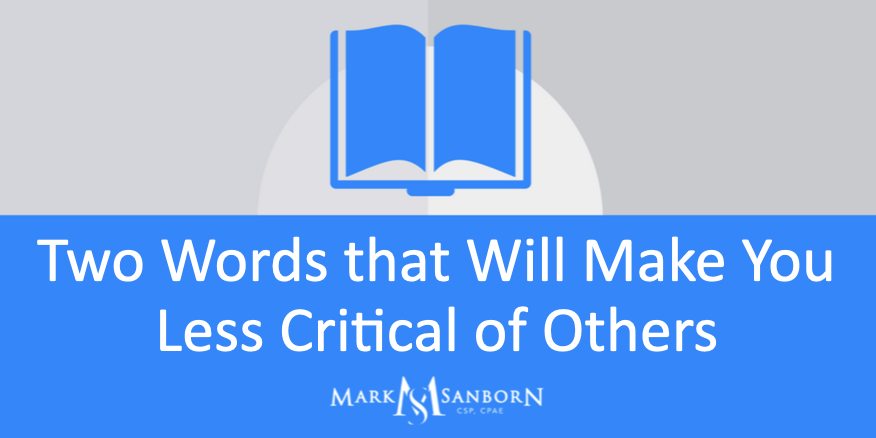A fellow traveler had stopped very close to the bottom of the escalator to search in their luggage while creating a potential pile up in the airport. “Good grief,” I thought angrily, “How self-absorbed can that person be? That’s just dangerous.”
Hanlon’s razor is a rule of thumb that suggests we never attribute to malice what is adequately explained by stupidity. Even rude and thoughtless behavior isn’t necessarily malicious, but instead self-absorbed or, as Hanlon believed, just stupid.
What category did the person at the bottom of the escalator belong in? I don’t know and that isn’t my point.
My point is that I was being very critical.
It is easy to find fault in others. Being critical seems like a natural disposition. We easily spot the bad behavior in others while we ignore or justify our own.
But isn’t it odd that what we often criticize others about something we also do or have done?
I don’t recall purposely blocking the exit of an escalator but am sure I mistakenly caused a backup or inconvenience to others without noticing.
That’s why I’ve found two words helpful for reducing this tendency I share with so many others.
When I start to be critical, I pause to ask myself, “Have I?”
More broadly, if you aren’t currently doing something you criticize others of, have you ever? There’s no upside in minimizing it. Whether you do or have done something thoughtless or stupid once or many times makes little difference.
We all make mistakes. Do stupid things. Say something rude and regret it later.
An honest recognition and admission of the same things in ourselves that we criticize in others should make us less harsh and judgmental.
I’m no proponent or apologist for bad behavior. But like us all, I have been and am guilty of it myself. So now before I criticize another for something he or she did, I simply ask myself, “Have I?” That question gives me a kinder perspective on others and a more realistic perspective of myself.
Mark Sanborn is an award winning speaker and Leadership Expert in Residence at High Point University, the Premier Life Skills University. For more information about his work, visit www.marksanborn.com.








